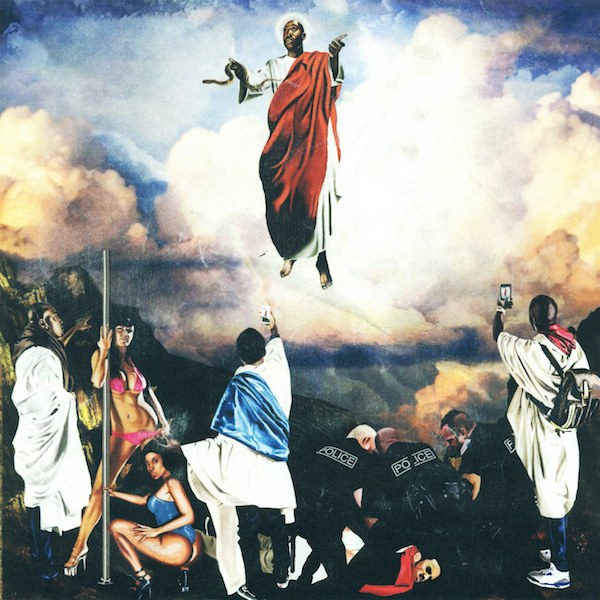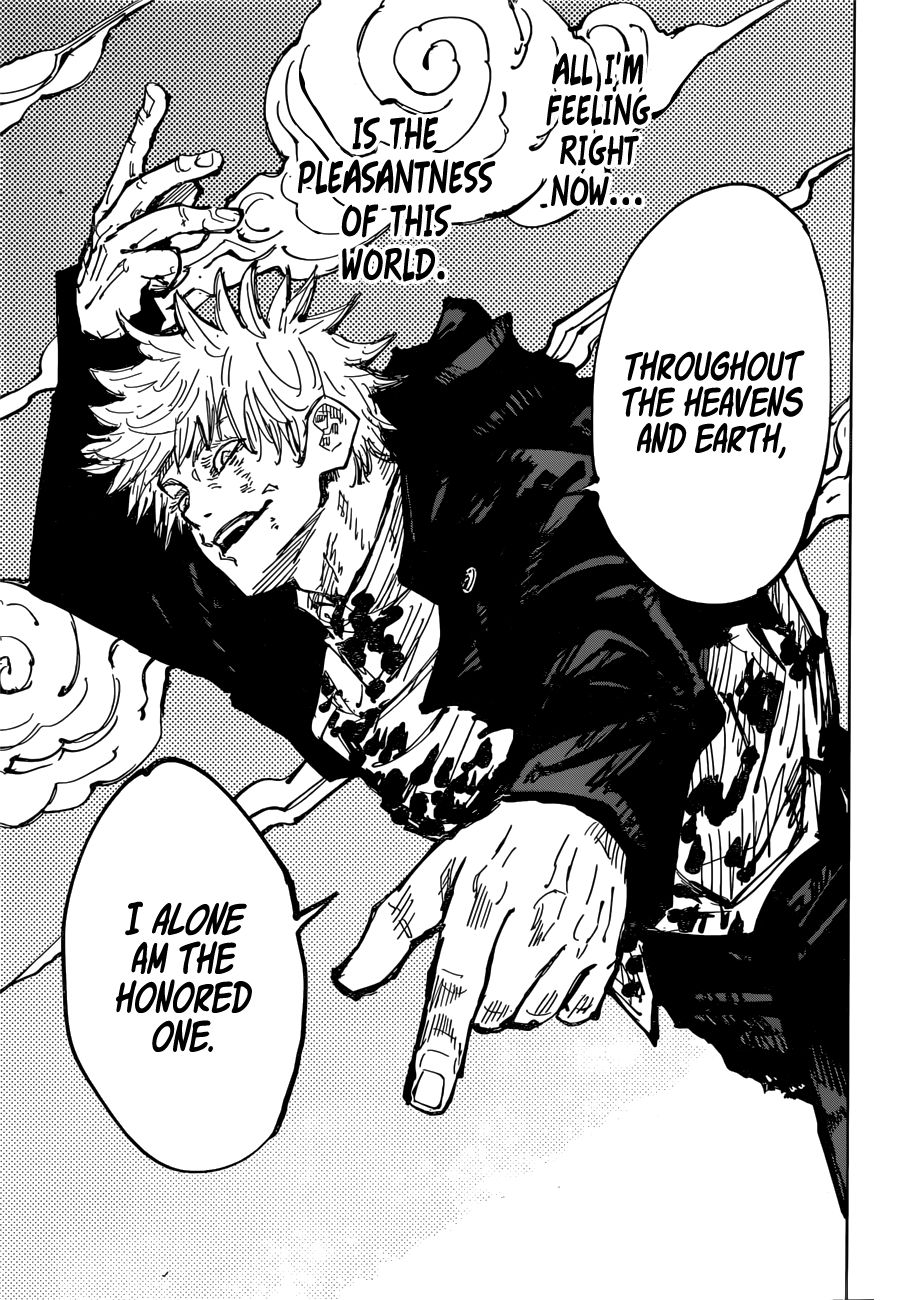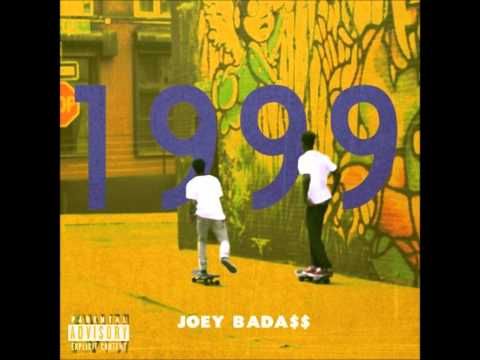By: Tommy Rodriguez
“Tell me what happens when you die”
These chilling words are the first you will hear on IDK’s latest studio album, Is He Real. Surrounded by heavenly, childlike wonder in both his voice and instrumental, Maximillian Battle responds by describing the sheer wonder and beauty of heaven, waiting in an eternally long line so he could finally find eternal life. As he nears the front…
He wakes up, because “God isn’t fucking real”.
IDK, while the most recent to challenge the existence of God in a world such as ours, is not the first hip hop artist to talk about God in his songs. Countless rappers, of many faiths, have at least mentioned God in their work, name checking his blessings and sanctification alongside designer brands and foreign cars. Drake’s “God’s Plan” was almost entirely an almsgiving to a higher power for giving Champagne Papi the ride he has ridden, and “Jesus Walks” paved the way for sinners like Kanye West to show that the Holy Son is walking besides them…
But again, IDK’s latest album doesn’t profess or even acknowledge the existence of God.; according to IDK, his Scriptures contradict the life of any human, abandoning humans to their vices on many of the songs on the album. God’s influence, or lack thereof, is a constantly recurring theme on the record, and made me rethink on how God impacts hip hop. IDK’s perspective lies deep in God’s nonexistence, which in turn allows for fantasies of sex, theft, and chaos to plague humanity. Rap music throughout the decades has revolved around these kinds of topics, but has somehow found a way to connect God with the streets and the minds of those who live within them.
Throughout all the stories contained within rap’s constantly growing history, God is the one character that spans across all eras in the genre. He inspires fear, hate, love, passion, or is simply a direct cause of artists’ failures and triumphs over the everyday struggle.
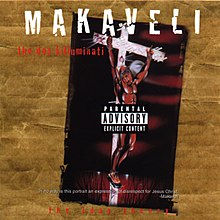
The earliest mentions of God in rap are arguably the most common: his disappearance from the lives of those behind the booth. The constant cycle of hedonism and violence on albums like Ready to Die clearly have ties to a lawless land without morals or a watchful eye in heaven; on “Suicidal Thoughts” Biggie directly references the land of Heaven as unattainable, the “goodie goodies” of heaven simply incompatible with his street DNA. Direct mentions of God are ominous, referencing death and murder on Tupac’s “Hail Mary” and any number of Big L tracks as he swears to send you to your maker. God’s presence is largely negative; without his watch, the people struggle under the threat of death and addiction. Seeing God isn’t a blessing, it means you lost your soul to the war on the street.
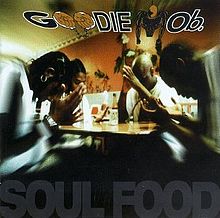
Ironically, God occasionally peeks his head out as a lifeline for a few of these artists. GZA’s “B.I.B.L.E”, Goodie Mobb’s constant dinnertime prayers, and Master P’s album Only God Can Judge Me seem to point to a certain glimmer of hope, a chance that maybe God can assist us with the struggles within ourselves and our opponents.
As the rap landscape expanded into the bling/modern era, God’s notoriety in hip hop only grew, with more overt references to the big man upstairs popping up in the lyrics of some of the genre’s biggest songs. “Many Men”, besides being one of 50 Cent’s most anthemic tracks, is one of the prime examples of how belief in higher powers and destiny seem to drive rappers to survive, especially on this particular set of lines:
“In the bible it says, what goes around, comes around
Almost shot me, three weeks later he got shot down
Now it’s clear that I’m here, for a real reason
‘Cause he got hit like I got hit, but he ain’t f****** breathing”
50 Cent’s final verse on “Many Men” is a moody yet triumphant moment that cemented him as a man of the streets and believer in God.
Kanye West, a year later, was obviously an innovator in “Jesus rap” with an entire song dedicated to the Son, the aforementioned “Jesus Walks”. Now, God wasn’t just used to express dark themes. He could get the club moving while inspiring the masses. Countless rappers have thanked God for his gifts, whether it’s success in the game or the new Lambo in the garage. Even cutthroats like Rick Ross seem to clearly praise God in many of their tracks, despite how it contrasts with religiously immoral behavior.
Today, God’s presence in rap is incredibly diverse. Rappers like Chance the Rapper dedicate entire albums to praising him in a hip hop styled gospel session, while other artists like the late Mac Miller have used his being as a metaphor for the beauty of the female anatomy. Hell, other religions have become more accepted in the community due to the near universal feelings of theological questioning felt by rappers like Freddie Gibbs, a Muslim practitioner who rapped about his struggles with hunger in a pork-serving prison.
The complexity and evolution of God in rap today can be perfectly exemplified by one of the decade’s most topical songs, Kendrick Lamar’s “How Much A Dollar Cost”. God, portrayed by a begging man on the track, tests the faith of Lamar and abandons him in a way that is harrowing yet altogether powerful, amalgamating the grimness of his 90’s traits while developing the lyrics in a humbling way that can only be found today.
Perhaps God exists. Perhaps he doesn’t. The answer will vary from person to person, but the shadow he casts on hip hop is massive. He is the reason for failure, success, death, and life. Spirituality haunts the thoughts of many, and hip hop’s connection to God simply proves that it is the voice of people that are lost in the world, looking for an answer to the problems that plague us all…
Soflosound.com is your one stop shop for a hip hop fan’s music reviews, profiles, and essays. By the youth, for the youth, and allied with all oldheads, everywhere. Leave a comment below on what you want to see next!
